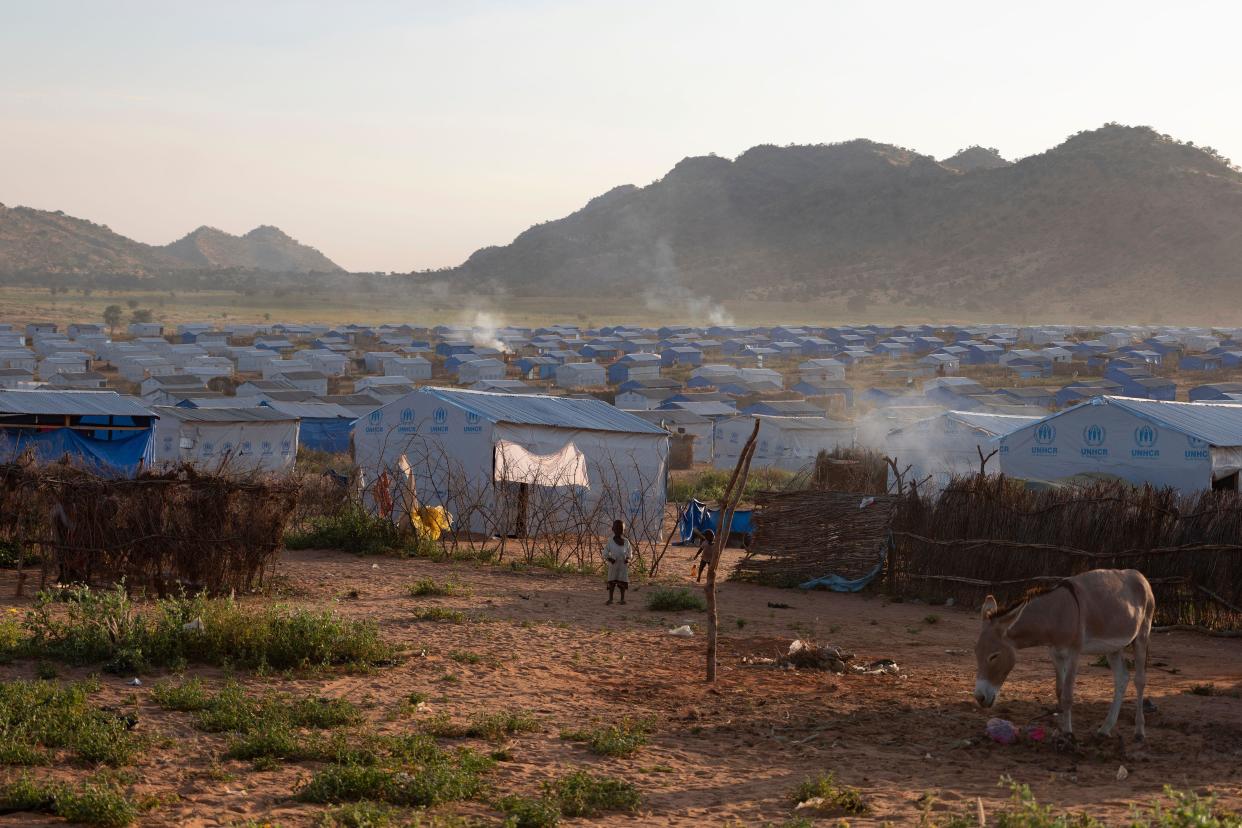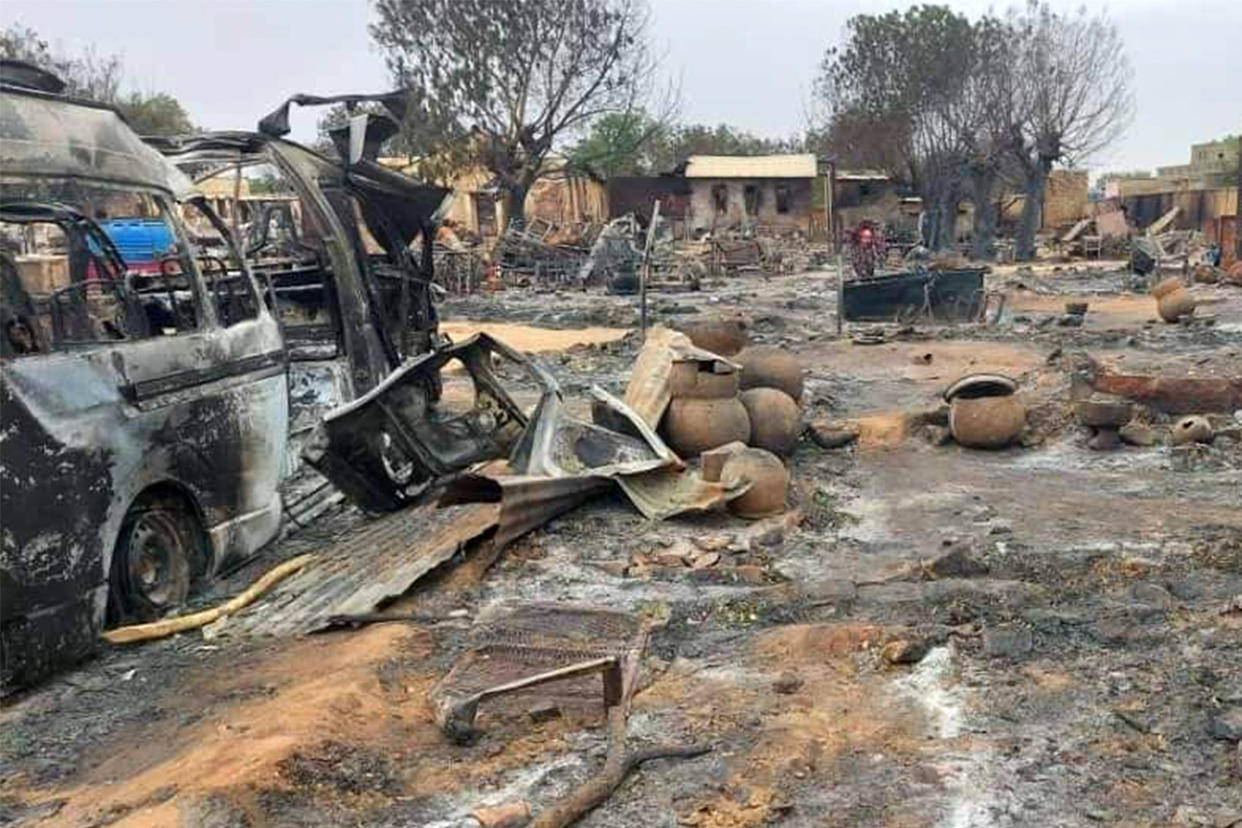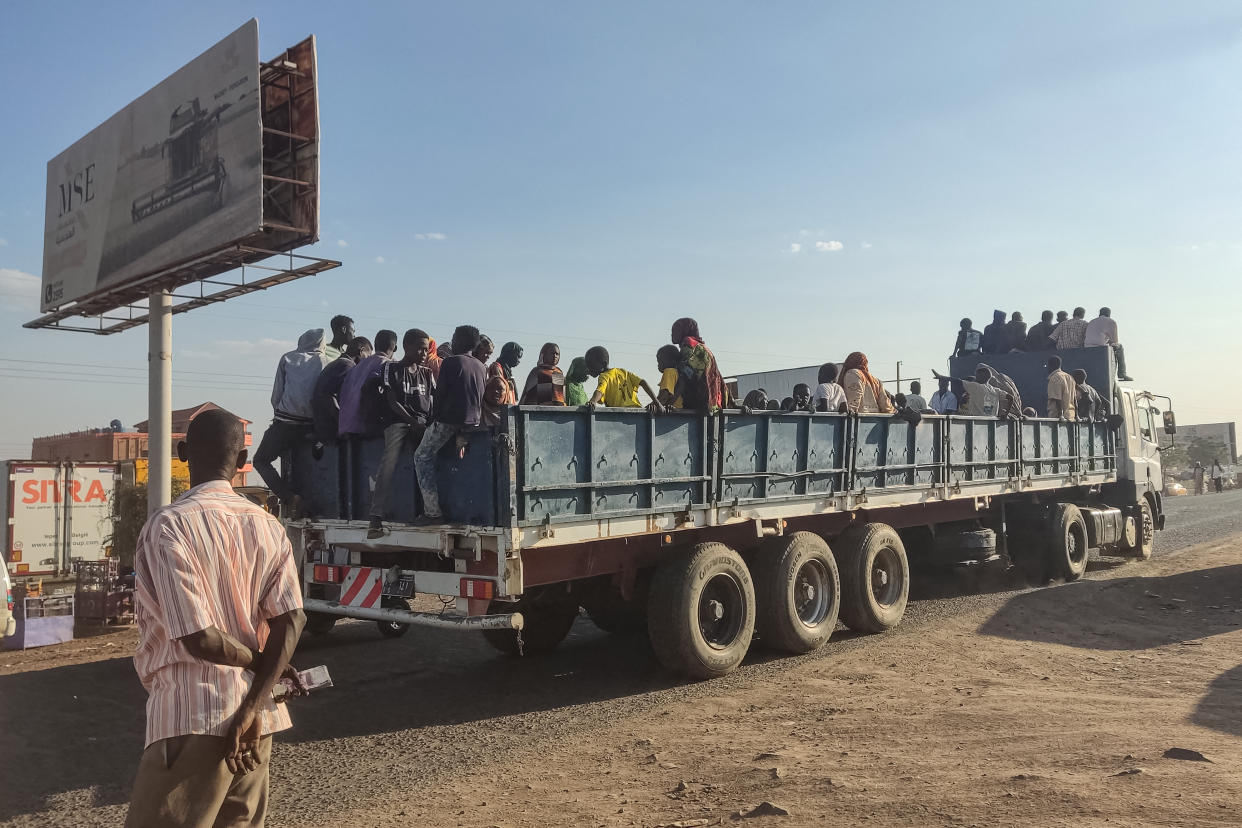How the world has forgotten the Sudan war

As the year comes to a close, with wars continuing to rage in Europe and in the Middle East, the months-long conflict enveloping Sudan has slipped from the world’s gaze.
The latest development to the turmoil unfolding in Africa’s third largest country is that the UN has been asked to leave at the request of Sudan’s military government.
This decision stems from its accusation that the UN Integrated Transitional Assistance Mission has failed to meet expectations. The winding down of operations has now started and is expected to conclude in February.
All this comes at a time when the conflict in Gaza dominates headlines. But the UN and aid charities have urged the world to refocus on the conflict that erupted in April this year and continues to engulf this vast country, which first gained independence from Egypt and the UK in 1956.
Read more about Sudan:
Sudan unrest grows as more than 250,000 flee safe zone after it's taken over by militia responsible for Darfur destruction (Sky News)
RSF paramilitary seizes control of Wad Madani, Sudan’s second city (The Guardian)
“What’s unfortunate, at the same time, is given everything else that is going on in the world, the conflict is receiving very little international attention. Unfortunately Sudan is facing one of the world’s largest displacement crisis,” tells Anne Marie Schryer, the International Rescue Committee’s East Africa regional advocacy coordinator, to Yahoo News.
The UN currently estimates that nearly half of the 49 million population require urgent humanitarian assistance while six million have been driven from their homes and 10,000 have been killed.
‘The war that erupted without warning turned previously peaceful Sudanese homes into cemeteries,’ said Dominique Hyde, director of external relations at the UN refugee agency (UNHCR).
‘Away from the eyes of the world and the news headlines, the conflict in Sudan continues to rage. Across the country, an unimaginable humanitarian crisis is unfolding, as more and more people are displaced by the relentless fighting.’
Sudan descended into war in April after tensions escalated between two former allies - army chief General Abdel Fattah al-Burhan and paramilitary Rapid Support Forces (RSF) commander General Mohammed Hamdan Dagalo. The conflict started over political differences following the overthrow of former ruler Omar al-Bashir as well as the planned integration of the RSF into the army.

Before then, General al-Burhan and RSF commander Daglo had been allies who teamed up and turned against al-Bashir during the pro-democracy movement in 2019.
But negotiations that could have led to a re-establishing of democracy fell apart and violence erupted in Khartoum before spreading to other regions, displacing millions of the country’s inhabitants. The UN estimates around 1.2 million civilians have fled to neighbouring countries, including Chad and Ethiopia, with thousands fleeing to the relative safety of south Sudan every day.
The breakdown in civil order has also had a catastrophic impact on the country’s health infrastructure and led to growing concerns about cholera and measles outbreaks.
In addition, there is growing alarm over ethnically targeted attacks in the Darfur region as well as sexual violence against women and girls.
Last month a UN official warned violence against civilians in Sudan was ‘verging on pure evil’, and that the intensified fighting had echoes of the grim atrocities that tore across Darfur 20 years ago.

UN spokesperson Seif Magango says the situation is deeply concerning and that there were similarities between what is happening now and what was seen in the country in the early 2000s.
In 2003, the western Darfur region was attacked by the Sudanese military-led government and its proxy militia Janjaweed. As a result around 200,000 civilians died and around two million were displaced.
“The scale of the two situations might have differences that are not entirely obvious, but people were killed - there were ethnically motivated killings and we see them starting to happen again during this conflict,” Magango tells Yahoo News.
The RSF, a predominantly Arab fighting force, has been accused of carrying out attacks on towns and villages against non-Arabs tribes in Darfur.
According to Human Rights Watch, a series of ethnically motivated attacks by the RSF and allied Arab militias against the non-Arab Masalit communities has seen hundreds killed and more than 300,000 displaced.
Magango says those involved in war crimes need to be held accountable and both sides need to be investigated by the authorities - including those who have command responsibilities.
There have also been horrifying allegations of women and girls being abducted, raped, forcibly married and held for ransom in areas controlled by the RSF.
Human Rights Watch says in almost all the instances reported, those responsible for the rapes also carried out beatings, killings, looting, or burning homes, businesses or government buildings.

A CNN documentary, aired last month, exposed an RSF campaign to enslave women and men in the El Geneina, the capital of West Darfur. Those who spoke to CNN talked of women being forced to perform sex acts in exchange for food and water and men and women being traded as slaves by their captors.
"All Sudanese people have been directly or indirectly affected by the ongoing war but unfortunately it’s mainly women and children who are having to pay the consequences in these conflicts," says Adnan Hazem, of the International Committee of the Red Cross, to Yahoo News.
He says the civil war has impacted upon all elements of life in the country ranging from economic to transportation to education with many children simply unable to attend school.
As the UN started the process of winding down operations it made clear that it was not abandoning the Sudanese people and made a broad appeal for forces within the country to ‘bolster efforts to bring the devastating conflict to an end’.
There was also an attempt last month, brokered by the US and Saudi Arabia, to bring about a ceasefire. But it came unstuck when both sides of the conflict failed to pull back their forces.
For the long-suffering Sudanese the hope must be that in the year ahead its warring leaders, and the world, will find a solution to end their suffering.


